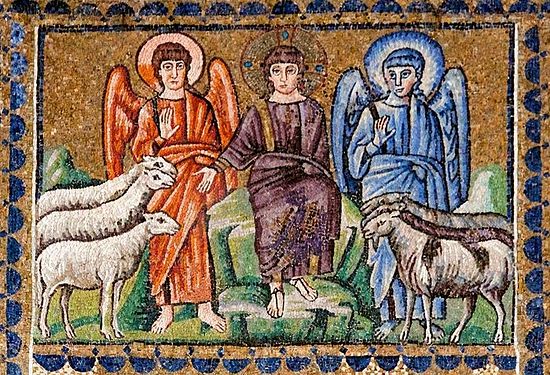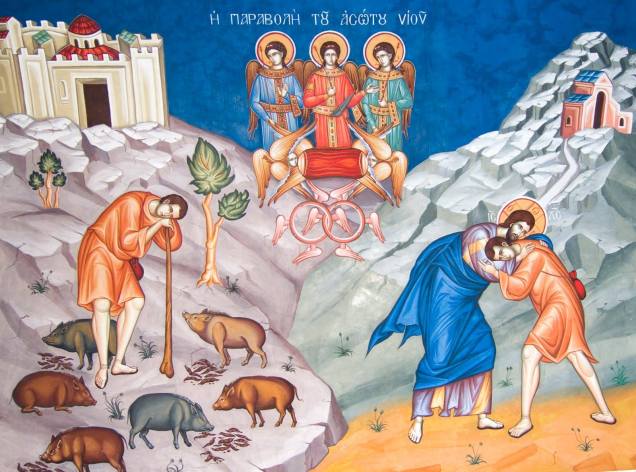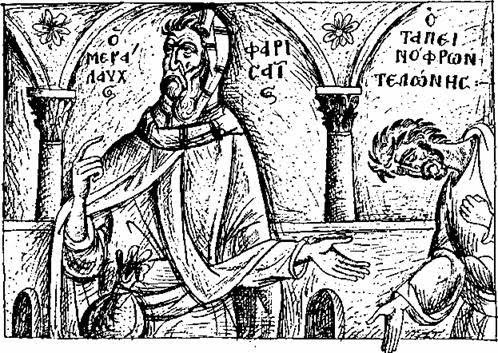 Today is the Sunday of the Last Judgment, more popularly known as Meatfare Sunday, because it is also the last day to eat meat until Pascha. The hymnography for this week is about as fire and brimstone as we get in the Orthodox Church. For example:
Today is the Sunday of the Last Judgment, more popularly known as Meatfare Sunday, because it is also the last day to eat meat until Pascha. The hymnography for this week is about as fire and brimstone as we get in the Orthodox Church. For example:
When the thrones are set in place and the books are opened,
then God will take His place on the judgment seat.
Oh, what a fearful sight!
The Angels stand in awe, and the river of fire flows by.
What shall we do, who are already condemned by our many sins,
as we hear Christ call the righteous to His Father’s Kingdom,
and send the wicked to eternal damnation?
Who among us can bear that terrible verdict?
Hasten to us, O Lover of mankind and King of the universe;
grant us the grace of repentance before the end,
and have mercy on us! (Doxastikon at Lord, I Call) Continue reading
 Today is the first Saturday of Souls of the year. Saturdays are always associated with the commemoration of the departed, per the weekly cycle, just as Mondays commemorate the Bodiless Powers, Tuesdays John the Baptist, and so on. But on these Soul Saturdays we remember our departed more fully: we serve additional services, we pray for the departed by name, we offer kollyva.
Today is the first Saturday of Souls of the year. Saturdays are always associated with the commemoration of the departed, per the weekly cycle, just as Mondays commemorate the Bodiless Powers, Tuesdays John the Baptist, and so on. But on these Soul Saturdays we remember our departed more fully: we serve additional services, we pray for the departed by name, we offer kollyva. As I noted in a previous
As I noted in a previous  Today, the Sunday of the Publican and the Pharisee, marks the real beginning of our long journey to Pascha, which this year falls relatively late, on April 28th. That’s over two months away. Great Lent itself doesn’t begin until March 11th. Several years back I remember trying to explain “pre-Lent”—the weeks of preparation leading up to Great Lent, which is itself a preparation for Holy Week and Pascha—to a Roman Catholic friend, who reacted with a fair degree of bemusement. My first year at seminary I had a similar conversation with my mom in the context of a larger discussion about Orthodox fasting practices (“Yes, chicken counts as meat,” and so on).
Today, the Sunday of the Publican and the Pharisee, marks the real beginning of our long journey to Pascha, which this year falls relatively late, on April 28th. That’s over two months away. Great Lent itself doesn’t begin until March 11th. Several years back I remember trying to explain “pre-Lent”—the weeks of preparation leading up to Great Lent, which is itself a preparation for Holy Week and Pascha—to a Roman Catholic friend, who reacted with a fair degree of bemusement. My first year at seminary I had a similar conversation with my mom in the context of a larger discussion about Orthodox fasting practices (“Yes, chicken counts as meat,” and so on).